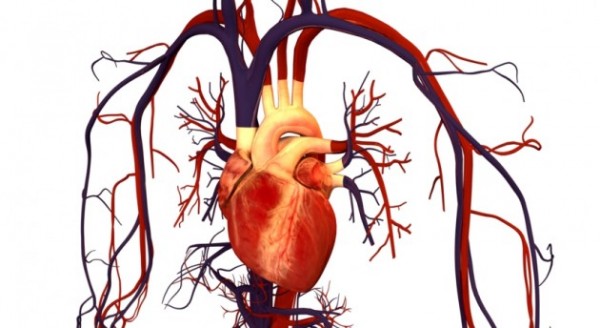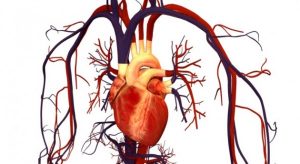
Atrial Septal Defect – causes, side effects and treatments at NaturalPedia.com
Saturday, January 06, 2018 by Zoey Sky
http://www.naturalpedia.com/atrial-septal-defect-causes-side-effects-and-treatments-at-naturalpedia-com.html

An atrial septal defect (ASD), also known as an atrioseptal defect, is a hole or defect in the septum between the heart’s two upper/collecting chambers (atria). The septum is the wall that separates the left and right sides of the heart, and a hole in the heart is called a septal defect.
We’re all born with a natural hole between the collecting chambers of the heart called the foramen ovale. This hole is necessary because it allows the fetus in the womb to receive oxygen-rich blood from the mother’s placenta. This blood is then sent to the baby’s brain and heart.
Once the infant is born, it no longer needs the foramen ovale, which naturally closes by itself in most individuals. However, a small opening in the heart of at least one in five healthy adults may remain. This is called a patent foramen ovale (PFO).
The ASD is larger than a PFO and may or may not be in the same place as the natural hole present during infancy.

Known side effects of an atrial septal defect
Many children with ASD may seem healthy because they have no symptoms. But if the ASD is large, this means a large amount of blood can pass through to the right side of their heart. The right atrium, right ventricle, and lungs will be strained, and the following symptoms might manifest:
- Tiring easily when playing
- Fatigue
- Rapid breathing
- Shortness of breath
- Poor growth
- Frequent respiratory infections
Body systems harmed by an atrial septal defect
Individuals who have larger or more complicated ASDs have an increased risk of developing other problems such as:
- Abnormal heart rhythms, especially atrial fibrillation (quivering/irregular heartbeat or arrhythmia)
- Heart failure
- Heart infection/endocarditis
- High blood pressure in the arteries of the lungs
- Stroke
Food items or nutrients that may prevent an atrial septal defect
Incorporate the following foods and nutrients into your diet to prevent ASD:
- Lemons – Lemons can help prevent heart problems because it halts the accumulation of cholesterol in the blood vessels.
- Grapefruit – Grapefruit can tone up the heart.
- Apples – Apples have heart-stimulating properties.
- Tulsi/holy basil – Take a spoon of tulsi juice with a spoon of honey on an empty stomach every day.
- Vitamin E – Improves the oxygenation of the cells.
Treatments, management plans for an atrial septal defect
Treatment for an ASD includes:
- Medical management – Children with no symptoms require no medications. But in rare circumstances, children may need to take medications to help their heart work better, especially since the right side is under strain from the extra blood passing through the ASD.
- Surgical repair – An ASD can be repaired surgically in the operating room. Done under general anesthesia, the hole can be closed with stitches or a special patch.
- Device closure – Often done for secundum ASD, a device closure involves sedating the patient and the insertion of a catheter (flexible tube) inside the heart via a blood vessel in the groin. As the catheter reaches the heart, the cardiologist will pass a septal occluder, a special device, into the open ASD to prevent blood from flowing through it.
Where to learn more
- New Study Finds Increased Risk of Birth Defects Related to First Trimester Use of ACE Inhibitors (press release)
- Taking Antidepressants During Pregnancy Doubles Heart Defect Risk of Newborn
- Taking Paxil during pregnancy causes heart defects in fetuses, warn obstetricians
- Nutrients.news
- Medicine.news
Summary
An atrial septal defect, also known as an atrioseptal defect, is a hole or defect in the septum between the heart’s atria.
Individuals who have larger or more complicated ASDs have a higher risk of developing other problems such as heart failure, heart infection, or stroke.
Treatment for an ASD includes medical management, surgical repair, or device closure.
Sources include:
Tagged Under: Tags: atrial septal defect





